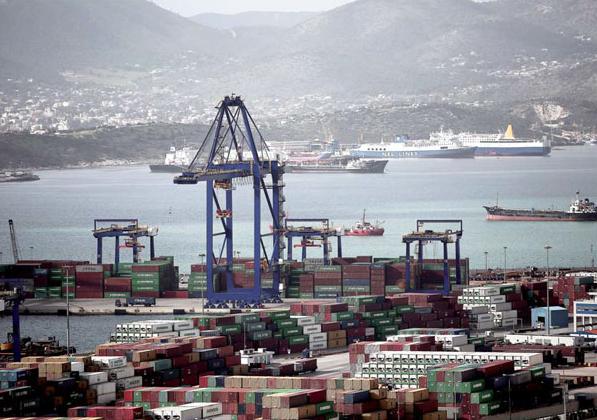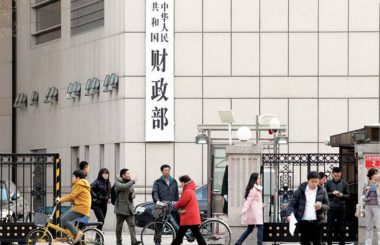China gains stakes in Piraeus Deal to boost Eurasian connectivity
Updated: 2016-04-08 20:36
By Maria Petrakis(chinadaily.com.cn)
|
|||||||||
 |
|
Greece's largest port, Piraeus, near Athens. [Photo/Agencies] |
Athens – Greece sealed a deal to sell the shares of its biggest harbor to China COSCO Shipping Corporation Ltd. on Friday, concluding a sale that will give the Chinese shipping behemoth control over one of its key thoroughfares into Europe. Cosco pledged to make good on promises to drive more investment into the port and the country.
"Piraeus will be like an Argo," a reference to the ship of ancient Greek mythology, Xu Lirong, president of China COSCO Shipping Corporation Ltd., said at an event in Athens after the signing with Greek Prime Minister Alexis Tsipras. "Let's let it open the sails and bring back the golden fleece."
Stergios Pitsiorlas, president of Hellenic Republic Asset Development Fund which brought the long-delay deal to a conclusion earlier this year, said the signing was "an important agreement and an important moment".
Cosco consolidated its hold over the Greek port in January, agreeing to pay 368.5 million euros for a 67 percent stake. Cosco will buy a 51 percent stake in Piraeus for 280.5 million euros and will acquire the additional stake in the next five years for 88 million euros on completion of the terms in the shareholder agreement, including investments.
Greece's state asset sales fund, which handled the sale, said at the time the entire value of the Cosco agreement would come to some 1.5 billion euros, taking into account purchase price, investments, dividends and income from an existing concession agreement.
Chinese investment in Piraeus is seen a key plank of China's One Belt, One Road policy, which envisages creating the 21st century land and maritime equivalent of the Silk Road. Since the Chinese shipping behemoth started container operations in 2009, traffic has surged at Piraeus, making the harbor one of the fastest-growing ports in the world. Premier Li Keqiang called Piraeus China's gateway to Europe in a visit to Greece in June 2014.
Xu, who mentioned he had worked in Piraeus 10 years earlier, called the signing "a historic moment".
The Piraeus sale is also seen as a yardstick in Greece's lacklustre state asset sales program, a key revenue-raiser tied to the country qualifying for billions in rescue funds from its European partners and the International Monetary Fund. The government and its creditors from the European Commission and International Monetary Fund have been locked in talks for weeks over the right mix of budget measures that would allow the release of additional bailout funds.
Tsipras was originally scheduled to attend today's event but was forced to change plans due to the needs of the negotiations, Pitsiorlas said.
More importantly, Cosco's supremacy at Piraeus is thought to be a prerequisite to unleashing more Chinese investment in Greece, where unemployment has soared and foreign investment dried to a trickle amid six years of political turmoil and concerns of financial collapse.
Greek officials expect Chinese investment in projects such as a major freight and logistics center on the outskirts of the Greek capital and a new airport planned for the island of Crete. Cosco is also thought to be among suitors for the country's train operator, Trainose.
The Piraeus sale is the first state asset sale the Tsipras government can claim since the leftist prime minister came to power a year ago, vowing to halt privatizations and tear up the two bailout agreements that forced higher taxes and cuts in wages and pensions on Greeks. In July last year he was forced to accept a new, 86 billion euro bailout to keep Greece in the eurozone.
Cosco has seen five separate Greek premiers, not including caretakers, since it won the license to operate Pier II in 2008 for 30 years at a cost of 490 million euros. The deal has become a regular campaign issue as Greek politicians seek votes from union workers, such as those in the Piraeus docks, unhappy about austerity measures.
Related Stories
Greece supports Chinese investment at Piraeus Port: PM 2015-02-20 13:57
Greek PM inaugurates COSCO-run port facilities 2013-06-27 11:05
COSCO sets new course to create six businesses 2016-02-19 06:55
China's Cosco is sole bidder for Piraeus Port stake, Greeks seek more cash 2016-01-12 21:32
Cypriot port run by COSCO would help promote Belt and Road Initiative 2015-12-31 11:01
Today's Top News
Chinese soccer aims to be among world top teams by 2050
Ministry says e-commerce tax brings no trouble for tourists
China gains stakes in Piraeus Deal
Riding on emotions
When the Bard met his Chinese match
EU to benefit from China's 13th Five-Year Plan
New app lets users text like Shakespeare
Zhubi Reef lighthouse comes to life
Hot Topics
Lunar probe , China growth forecasts, Emission rules get tougher, China seen through 'colored lens', International board,
Editor's Picks

|

|

|

|

|

|







